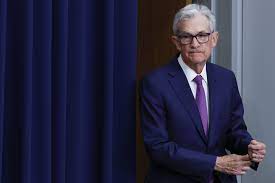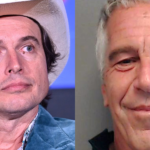As the United States’ national debt approaches $34.2 trillion, prominent figures in finance have begun speaking out about the issue. Surprisingly, Federal Reserve Chairman Jerome Powell joined the conversation during an interview on CBS’s 60 Minutes last Sunday, warning about the unsustainable fiscal path the country is on.

Despite the U.S. economy avoiding a predicted recession in 2023, extensive government spending and reduced tax revenues have propelled the national debt to record highs. The debt-to-GDP ratio, a key measure of fiscal health, has surged from just over 100% in 2019 to over 120%, indicating that the government’s debt is growing faster than the economy.
Powell emphasized the urgency for elected officials to engage in a responsible dialogue about restoring fiscal sustainability. While acknowledging the Fed’s nonpartisan stance, Powell criticized unsustainable policies that essentially burden future generations with debt.
Powell’s remarks echo concerns raised by JPMorgan Chase CEO Jamie Dimon, who warned of a looming economic “cliff” unless action is taken to address the mounting debt. Dimon cautioned that continued fiscal irresponsibility could lead to discontent among foreign holders of U.S. government bonds.
The sentiment against rising deficits is not new among financial leaders. Mark Spitznagel of Universa Investments and Ray Dalio of Bridgewater Associates have long cautioned about the consequences of unchecked debt accumulation, citing the risk of a debt crisis.
Despite these warnings, Treasury Secretary Janet Yellen remains optimistic, citing net interest payments as a share of GDP, which she views as reasonable. However, Powell stressed the need for prompt action, noting that the U.S. economy’s resilience offers hope for rectifying the debt situation.
While the situation is concerning, Powell highlighted America’s dynamic and innovative economy as a potential mitigating factor. Nonetheless, he emphasized the importance of addressing fiscal challenges sooner rather than later to ensure long-term economic stability.









